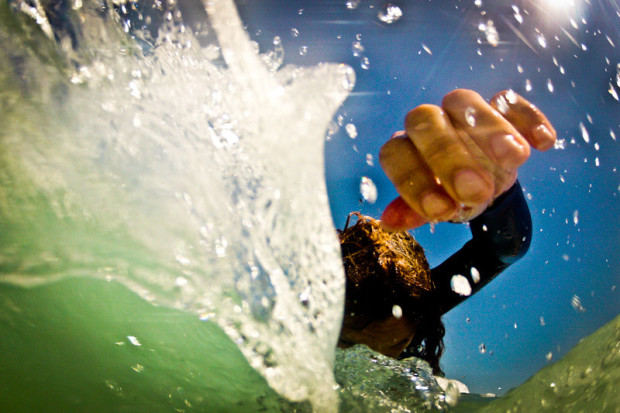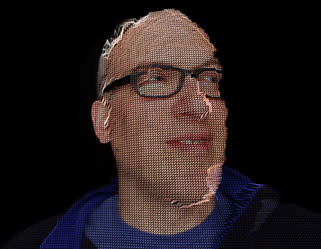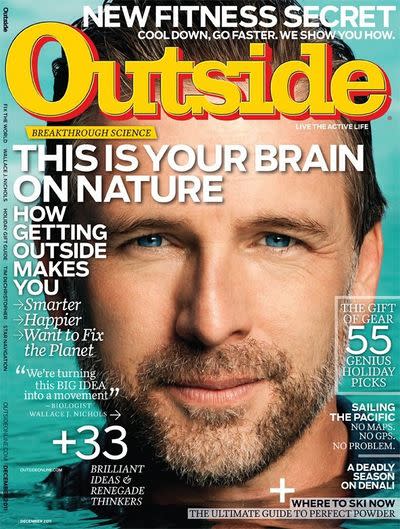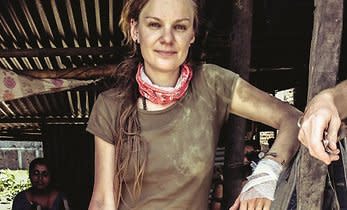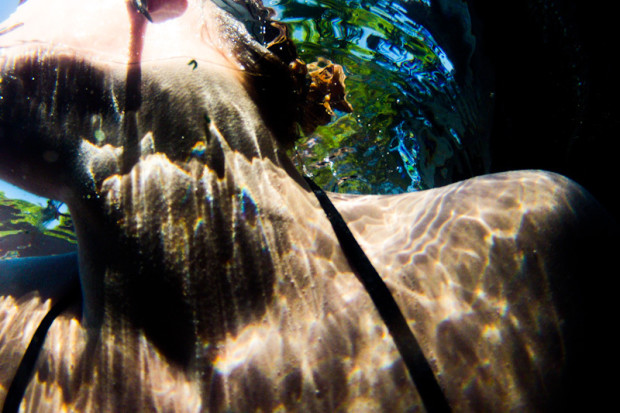see interview with her agent here:
http://www.writersdigest.com/editor-blogs/guide-to-literary-agents/agent-advice-dawn-dowdle-of-blue-ridge-literary-agency
BACKSTORY TO HER SEARCH FOR AN AGENT AND A PUBLISHER: A GOOD NEWS STORY FOR WRITERS!
On Sun, Feb 9, 2014 at 5:59 AM, Charlene D'Avanzo
wrote to me out of the blue at Cli Fi Central:
>> Dan - I've read your Cli-Fi blog and wonder if you can help me. I've written
>> a mystery titled "Death in a Hot Sea" and am looking for an agent. Just FYI
>> - my query is below so you can see what this is about. Thanks so very much,
>> Charlene D'Avanzo
>>
>>
>> Dear AGENT: ........ I hope you will enjoy ''DEATH IN A HOT
>> SEA,'' a 72,000 word amateur sleuth mystery and the first in [what I hope will be] a series. My
query is below and I appreciate your time and consideration.
>>
>>
>>
Maine oceanographer Mara Tusconi ....is excited as she bounds onto Research Vessel Endeavor for a cruise
focusing on the biggest environmental issue of our time - Earth's warming.
>>
>>
>>
>> But the battle against climate change gets personal - and deadly - when .......
>>
>>
>>
When Mara investigates........she uncovers a seaweed-biofuel hoax
subsidized by a gigantic oil conglomerate. ......
>>
>>
>>
>> PS: I am a marine ecologist and an award winning environmental educator, author
>> of a non-fiction book and dozens of scientific articles, plus editor of two
>> scholarly journals. I'm also an avid sea kayaker with a house in Maine (sea
>> kayaking is key in this novel). This book would interest fans who enjoy
>> mysteries by Nevada Barr (Park ranger Anna Pigeon series) and Barbara Ross
>> (Maine clambake series).
----------------------------
I wrote back to her the same day, giving her this advice:
RE:
www.sunburypress.com
On Sun, Feb 9, 2014 at 11:07 AM, Dan Bloom <danbloom@gmail.com> wrote:
> Hi Charlene!
>
> I used to spend teenage summers in Maine, summer camp in Bar Harbor,
> and climbing Mt Cadilac, 1960s.
>
> I love your proposal! Sounds great for cli fi mystery YES.
> and there is a writer in Finland named ANTTI Tuoaminen he wrote a cli fi
> NOIR novel called THE HEALER, published now in English too, google it
> at
> amazon and it is cli fi thriller detective story set in the future.
> scary and very
> cli fi. he emailed me too. he got lucky because he already had track
> record in Finland with three earlier novels so his publisher did the book.
>
> To find an agent is so hard. Near impossbile these days. Unless
> you live next door to STephen King and he does u a favor and
> asks HIS agent to rep you. otherwise, they don't answer their mail.
>
> My advice is this: publish the book as an ebook and POD book paperback
> with a indie publisher, i know a good man at Sunbury Press in Pennsylviania
> he has done 3 books for me, and he has a good PR website to get word
> out because that is KEy, i would ask him to publish your book as a CLI
> FI MYSTERY on the cover print.....is it ready to send?
>
> google LAWRENCE KNORR or write to him at
@sunburypress.com
>
> That's my advice, but the PR and promotion will be up to you and the
> mass media will likely NOT review the book, but you can use internet
> and blogs to get word out and if the first book does well and catches
> on, an agent might appear for second book. TRY IT. most people these
> days are doing it this
> way. a search for an agent without an introcution is near impssiobe
------------------
My second letter to Charlene: with more advice:
Dear Charlene,
There are lots of great sites for aspiring writers to help them on
their route to publication. Here are few that I I FOUND ONLINE
agentqueryconnect.com
agentquery.com
absolutewrite.com
writersdigest.com
AND YOU HAVE YOUR OWN RESEROUCES TOO SO GO GO GO
YES TOO MANY SELF PUB BOOKS TODAY ARE NEVER EDITED AND
THAT IS NOT GOOD.
------------------
another letetr to Charlene reads:
On Sun, Feb 9, 2014 at 9:58 PM, Dan Bloom <danbloom@gmail.com> wrote:
> Hi Charlene
>
> I ALSO ADMIRE YOUR PLUCK AND ENERGY ON THIS AGENT QUEST, so yes, GO GO
> GO on this search first......and you are right, an agent leads
> to an EDITOR who is vital, and a major publisher leads to great PR and
> distribution. ITS THE WAY TO GO but so so hard to through the gates.
> \BUT YOU CAN DO IT, I SEE YOU HAVE THE RESOURCES.
>
> MINDY MCGINNS DO YOU KNOW HER? SHE GOT LUCKY WITH BOOK CALLED NOT A
> DROP TO DRINK FROM MAJOR PUBLISHER
> MAYBE HER AGENT OR HER EDITOR CAN HELP GOOGL:E HER NAME AND OBOK TITLE
>
> I AM IN TOUCH WITH HER IT IS A CLI FI YA NOVEL SHE WROTE
>
> \MORE LATER
>
> MIDNIGHT HERE IN T AWIAN
>
> On Sun, Feb 9, 2014 at 9:50 PM, Charlene D'Avanzo
> wrote:
>> Dan - thanks so very, very much for your ideas and positive energy. I really
>> do appreciate it.
>>
>> I may follow your suggestions with Sunbury Press in the future, but at this
>> point I am still going to try to find an agent. I belong to a wonderful
>> organization called Sisters in Crime which sponsors "Guppies" groups (the
>> great unpublished - they have a terrific sense of humor) and within Guppies
>> I belong to a Agent Quest. We give each other advise with getting an agent
>> (e.g., critiquing the query). People in this group DO get agents. It seems
>> to be a matter of persistence if you have something good, which I do believe
>> I have. About half the agents I query get back to me with a polite "no" and
>> many never get back as you say - but their website say that is the case.
>> Right now, one agent has requested more from me - first 50 pages and the
>> synopsis.
>>
>> Another reason for going with a agent is the help you get from an editor -
>> which I am very interested in getting. I've been working with an editor I
>> hired for over a year and she's been extremely helpful (this is my first
>> attempt at fiction).
>>
>> So, we'll see. I may well go the self-publish route. My motivation for
>> writing "Death in a Hot Sea" is very serious - that scientists are doing a
>> terrible job reaching the public about the climate change crisis. So
>> perhaps the arts are a better way - and I would like to reach as many people
>> as possible with this book.
>>
>> Charlene
==============
another letter from CHARLENE to me:
Dan - I leave today for a one week cross country ski trip in Bryce Nat'l Park in Utah. I will get back to you when I return. Thanks for this idea, Charlene
----------------------------
LATER I WROTE TO HER with more informal advice for her novel and finding a home for it:
Charlene
i can help with Pr ideas
my hobby
1. you publish the book ASAP with SunBeery Press
2. you do intervuiews when book is out with Hampshire College
press release office first of all
3. then with Springfield REpublican newsppaer local news
4. then with Boston Globe newspaper and magazine section
5. then with Massachusetts associated press reporter in in Sprinfrield
or Boston
6. then with NEW YORK TIEMS science reporter Justin Gillis
7. then with Publishers Weekly magazine in NYC
8. then you write oped on sciene ed for NYTimes with book listed as
your recnt publciation
9. then you do TV interview with GMA and TODAY SHOW and CNN and BBC
10 then........
but first you need a book in your hands to show reporters. POD means
PRINT ON DEMAND, and Larry can make a good quality ebook first
and also a POD book which means when orders come in, he prints
it and sends out. he is honest man
----------------
==================
and another letter from Charline to me:
Hi Dan - Thanks for your PR and publishing advice for my novel. Actually, at this time, I am waiting on a few things. I went to a "CrimeWave" conference in Portland, Maine (near where I live) and the acquisition editor from Five Star Publishers, a small firm I really like, loved the 5000 words she read. She asked me to submit a query with her recommendation. I know there is a long way to go with this but I still want to pursue a traditional publishing route with a small publisher.
Thanks for keeping me in mind. Charlene
--------------------------------------------
> On 2/21/14, Charlene D'Avanzo <.> wrote:
>> Dan - Terrific news about the "Time" magazine cli fi interview - absolutely terrific.
>> For some reason, your email with the suggestion about what I might do
>> disappeared, along with my response to you. Please tell me once more
>> which site you are referring to. Thanks a lot, charlene
=============================================
in conclusion:
WELL, TO MAKE A LONG STORY SHORT.....Charline found the an agent, and the agent brought the book project to a publisher and Torrey House Press went for it, and asked for a three book contract, and Charline is now on her way. BRAVO!
and as you read at the top:
an-interview-with-mark-bailey-publisher-of-torrey-house-press/
http://artistsofutah.org/15Bytes/index.php/an-interview-with-mark-bailey-publisher-of-torrey-house-press/
''Cli-fi mystery'' novelist Charlene D'Avanzo has signed with a publisher -- Torrey House Press-- and their motto is "conservation through literature" which matches the author's intentions exactly, she says in a recent post. The first mystery in her "Maine Oceanography Series" will be released in May, 2016 ("Death in a Hot Sea") and she's working on the second novel in the series now and will deliver it in December. She has a 3-book contract, arranged by her agent. Agents and publishers these days for YA novels and mystery/detective novels prefer and like 3-book contracts with their new authors. It ropes them in, and publishers profit from the concept, and writers get a three book time period to prove they have a reputation that can attract fans and readers. GO GO GO Charlene. Nice to meet you back in 2014 out of the blue.
==========================
NOTE FOR WOULD-BE AUTHORS:
Contact Us / Submissions
Contact Us
Torrey House Press, LLC2806 Melony Drive
Salt Lake City, UT 84124
mail@torreyhouse.com
(801) 810-9THP
For all foreign and subsidiary rights inquiries, please contact our rights agent:
Nancy Stauffer Cahoon
Nancy Stauffer Associates, Literary Agents
30 Corbin Drive #1203
P.O. Box 1203
Darien, CT 06820 USA
Tel: 203 202 2500
nancy@staufferliterary.com
Submission Information
Torrey House Press (THP) publishes Western literature and environmentally-oriented fiction and nonfiction for the book trade. We are interested in well-crafted works of narrative nonfiction and literary fiction with a natural history, environmental or a natural landscape theme, or about the politics and practice of sustainable living.In an effort to be green and organized we strongly prefer that you submit your manuscript electronically through our submission manager link below.
If you have a completed work that you feel is a good fit for THP, please submit your entire manuscript along with a synopsis, some background on yourself and why you feel you are a good fit for THP, and your thoughts on who your market and readership is.
For queries on proposed work, please submit a one or two page overview of your book idea along with information about yourself, why you are qualified to write on the subject, who your audience is and how you would propose to market your work. If we like what we see we will request a full proposal.
For a full proposal, once requested, please include a cover letter, a resume, a preliminary table of contents, a one or two-paragraph summary of each chapter, a list of other books on the topic, details and specifics of your target audience, a summary of any market research you have done, and any completed chapters you have.
When you submit please tell us how you found us in your cover letter.
Thank you for your interest in Torrey House Press. Please allow up to three months for us to get back to you.
Mary interviews Charlene online here:
/////interview-with-charlene-davanzo-death-in-a-hot-sea//////
http://eco-fiction.com/interview-with-charlene-davanzo-death-in-a-hot-sea/
BRIEF EXCERPT from avery good interview with Mary:
Mary: You have written a novel, Death in a Hot Sea, about an oceanographer in Maine threatened by climate change doubters. This novel is with an agent now so has not been published yet. How much can you tell us about this novel? What inspired you to write it, and do you foresee continuing as a novelist after this book?
Charlene: The inspiration to write this mystery came to me as I listened to Ray Bradley, a well known UMass climatologist whose temperature reconstructions are prominent in IPCC reports. Bradley and Michael Mann, an equally famous climate scientist, were embroiled in a vicious climate change doubters’ assault based on their “Hockey Stick” graph. This graph clearly (too clearly, I guess) shows the relationship between industrialization, fossil fuel use, and global temperature increases. Incensed, Bradley detailed the harassment—demands for huge amounts of data, accusations about statements in emails between scientists, appearances before congressional committees, and so on.
After Bradley finished his presentation, I sat in the auditorium and watched this smart, generous man field questions from a dozen people crowding around him on stage. He’d devoted his professional life to trying to make sense of the global climate and now was accused of lying about his data by powerful politicians backed by big oil. I desperately wanted to “do something”. But what?
The idea [for the novel] just popped into my head. Many fiction writers have used novels to promote social change. Why couldn’t I? No matter that I had no experience whatsoever writing fiction. I could learn. I decided on mysteries because I love the genre and could envisage a story featuring climate change researchers hounded by climate change doubters.
SAYS CHARLENE'S AGENT, Dawn Dowdle :
My family and I live in Lynchburg, VA, in the Blue Ridge Mountains. I am an avid reader of cozy mysteries for relaxation and enjoy attending Malice Domestic when I have the chance. My reading interests have widened in the last few years.
The agency is a boutique agency, where we primarily represent Romances and Cozy Mysteries.
One of my favorite things to do is attend writers' conferences. In addition to networking with other agent and editors, I try to meet with any of my authors who might live in the area, as well as meet new authors.
Always a lot of fun!
SAYS CHARLENE'S AGENT, Dawn Dowdle :
My family and I live in Lynchburg, VA, in the Blue Ridge Mountains. I am an avid reader of cozy mysteries for relaxation and enjoy attending Malice Domestic when I have the chance. My reading interests have widened in the last few years.
The agency is a boutique agency, where we primarily represent Romances and Cozy Mysteries.
One of my favorite things to do is attend writers' conferences. In addition to networking with other agent and editors, I try to meet with any of my authors who might live in the area, as well as meet new authors.
Always a lot of fun!
Literary Agent Interview: Dawn Dowdle of Blue Ridge Literary Agency
“Agent Advice” (this installment featuring agent Dawn Dowdle of Blue Ridge Literary Agency) is a series of quick interviews with literary agents and script agents who talk with Guide to Literary Agents about their thoughts on writing, publishing, and just about anything else. This series has more than 170 interviews so far with reps from great literary agencies. This collection of interviews is a great place to start if you are just starting your research on literary agencies.
This installment features Dawn Dowdle of Blue Ridge Literary Agency. A freelance copyeditor, Dawn reviewed mysteries for years before starting Blue Ridge Literary Agency in January 2009. She lives in Lynchburg, Va., where she also facilitates a local writers’ group and is very active in her church. Although she read mysteries for fun, she handles most types of fiction and children’s fiction. She also blogs and Tweets.
(Hate writing synopses? Here are nuts & bolts pointers for you.)
She is seeking: mysteries, cozy mysteries, thrillers, urban fantasy, romance (no erotica), sci-fi, women’s, general, historical, Christian, young adult, middle-grade, and young readers. She does not seek: poetry, scripts, short stories, children’s picture books, memoirs, nonfiction, or screenplays.

GLA: How and why did you become an agent?
DD: I was a freelance editor and ran a mystery website promoting mystery books for authors. I like helping authors. One of my friends had me edit her manuscript. I really enjoyed it. She queried it to agents. One day she complained about the agent’s response—a small piece of paper with her manuscript’s title written incorrectly—and how queries always have to be so perfect to agents. She said, “I wish I could just do this myself.” So I started wondering what it would take to be a literary agent.
I have learned most tasks on the job throughout my life, so I started investigating being a literary agent. I decided to start an agency in January 2009 and began making contacts. Now I have mentors as well as 2 interns and a Rights Director affiliated with my agency. I represent approximately 80 manuscripts and have approximately 30 of those under contract with publishers. [Recently,] The Armageddon Chord by Jeremy Wagner, published by kNight Romance Publishing, became a best seller on BN.com. It was rated #6 in sales!
(Should you mention your age in a query letter?)
GLA: What’s something you’ve sold that comes out now/soon that you’re excited about?
DD: Paradise 21 by Aubrie Dionne came out August 5. I am very excited about this science fiction romance. When she queried me, I read the synopsis and was confused. I decided to read a few pages to see if the writing was good. I read every page of the three chapters she sent and wanted to know more. I immediately contacted her to offer representation. She is my first author signed with Entangled Publishing, a newer publisher. I’m very excited about this new publisher and this first book in her new series. There are two more books publishing in this series, Tundra 37 publishes in December and Haven 6 in April.
GLA: Besides “good writing,” and “voice,” what are you looking for right now and not getting? What do you pray for when tackling the slush pile?
DD: I’m always looking for a well-written cozy mystery. These are what I read for fun, so I’m always looking to work with writers of cozies. I’m also on the lookout for a good edge-of-your-seat thriller. I am always looking for a good romance. I work with many subgenres of romances: contemporary, historical, paranormal, suspense. I’d also love to get a steampunk.
GLA: On the flip side of that, what are you tired of seeing? Any specific topics or subgenres?
DD: Vampires, science fiction, thrillers that aren’t thrilling and historicals.
GLA: You run a writers’ group in Lynchburg, Va. Tell us a little bit about it (i.e., What does the group do, what was your purpose in creating it, is it made up of your clients, etc.).
DD: I do have a few clients in the group, but it is made up of anyone in the area who likes to write. We actually have two groups now. I only attend one, as I don’t have much time. We do a lot of critiquing and encouraging. We have a “book social” release party when one of our authors publishes their book.
GLA: What are 2-3 of your biggest chapter one no-nos? What makes you stop reading?
DD: Too much backstory or description. Not getting the story going. We do need to know something about the characters, but we also need to get invested in the story quickly. Catch my attention!
(Learn about pitching your novel to an agent at a writers’ conference.)
GLA: You require writers to include a marketing plan when they query you. What do you like to see here?
DD: I’m looking for the types of plans the author has to promote their book. It’s a tough business. Promotion is what will help your sales. Books no longer sell themselves. Authors can’t just write. If you’re not willing to promote your work, most publishers aren’t interested. I’m trying to find this out sooner.
GLA: Going one further, what should all new writers be doing—even before they snag an agent and/or sell?
DD: Get your name out there. Be on Facebook, blog, participate in online discussions. You need a platform to attract a publisher.
GLA: Will you be at any upcoming writers’ conferences where writers can meet and pitch you?
DD: None right now, but I did just attend The Write-Brained Network’s “One-Stop Workshop for the Serious Writer” in Harrisonburg, Va., Saturday, Sept. 2011.
GLA: What is something personal about you writers would be surprised to hear?
DD: I met my husband through a phone ad I placed 25 years ago (long before the Internet). We were engaged 6 weeks later and married 4 ½ months after meeting!
GLA: Best piece(s) of advice we haven’t talked about yet?
DD: Spell-check your query. Follow all directions for queries.
ADDITIONAL MATERIAL:
======================================
On April 1, 2015 Charlene wrote on Google:
This installment features Dawn Dowdle of Blue Ridge Literary Agency. A freelance copyeditor, Dawn reviewed mysteries for years before starting Blue Ridge Literary Agency in January 2009. She lives in Lynchburg, Va., where she also facilitates a local writers’ group and is very active in her church. Although she read mysteries for fun, she handles most types of fiction and children’s fiction. She also blogs and Tweets.
(Hate writing synopses? Here are nuts & bolts pointers for you.)
She is seeking: mysteries, cozy mysteries, thrillers, urban fantasy, romance (no erotica), sci-fi, women’s, general, historical, Christian, young adult, middle-grade, and young readers. She does not seek: poetry, scripts, short stories, children’s picture books, memoirs, nonfiction, or screenplays.

GLA: How and why did you become an agent?
DD: I was a freelance editor and ran a mystery website promoting mystery books for authors. I like helping authors. One of my friends had me edit her manuscript. I really enjoyed it. She queried it to agents. One day she complained about the agent’s response—a small piece of paper with her manuscript’s title written incorrectly—and how queries always have to be so perfect to agents. She said, “I wish I could just do this myself.” So I started wondering what it would take to be a literary agent.
I have learned most tasks on the job throughout my life, so I started investigating being a literary agent. I decided to start an agency in January 2009 and began making contacts. Now I have mentors as well as 2 interns and a Rights Director affiliated with my agency. I represent approximately 80 manuscripts and have approximately 30 of those under contract with publishers. [Recently,] The Armageddon Chord by Jeremy Wagner, published by kNight Romance Publishing, became a best seller on BN.com. It was rated #6 in sales!
(Should you mention your age in a query letter?)
GLA: What’s something you’ve sold that comes out now/soon that you’re excited about?
DD: Paradise 21 by Aubrie Dionne came out August 5. I am very excited about this science fiction romance. When she queried me, I read the synopsis and was confused. I decided to read a few pages to see if the writing was good. I read every page of the three chapters she sent and wanted to know more. I immediately contacted her to offer representation. She is my first author signed with Entangled Publishing, a newer publisher. I’m very excited about this new publisher and this first book in her new series. There are two more books publishing in this series, Tundra 37 publishes in December and Haven 6 in April.
GLA: Besides “good writing,” and “voice,” what are you looking for right now and not getting? What do you pray for when tackling the slush pile?
DD: I’m always looking for a well-written cozy mystery. These are what I read for fun, so I’m always looking to work with writers of cozies. I’m also on the lookout for a good edge-of-your-seat thriller. I am always looking for a good romance. I work with many subgenres of romances: contemporary, historical, paranormal, suspense. I’d also love to get a steampunk.
The biggest literary agent database anywhere
is the Guide to Literary Agents. Pick up the
most recent updated edition online at a discount.
is the Guide to Literary Agents. Pick up the
most recent updated edition online at a discount.
GLA: On the flip side of that, what are you tired of seeing? Any specific topics or subgenres?
DD: Vampires, science fiction, thrillers that aren’t thrilling and historicals.
GLA: You run a writers’ group in Lynchburg, Va. Tell us a little bit about it (i.e., What does the group do, what was your purpose in creating it, is it made up of your clients, etc.).
DD: I do have a few clients in the group, but it is made up of anyone in the area who likes to write. We actually have two groups now. I only attend one, as I don’t have much time. We do a lot of critiquing and encouraging. We have a “book social” release party when one of our authors publishes their book.
GLA: What are 2-3 of your biggest chapter one no-nos? What makes you stop reading?
DD: Too much backstory or description. Not getting the story going. We do need to know something about the characters, but we also need to get invested in the story quickly. Catch my attention!
(Learn about pitching your novel to an agent at a writers’ conference.)
GLA: You require writers to include a marketing plan when they query you. What do you like to see here?
DD: I’m looking for the types of plans the author has to promote their book. It’s a tough business. Promotion is what will help your sales. Books no longer sell themselves. Authors can’t just write. If you’re not willing to promote your work, most publishers aren’t interested. I’m trying to find this out sooner.
GLA: Going one further, what should all new writers be doing—even before they snag an agent and/or sell?
DD: Get your name out there. Be on Facebook, blog, participate in online discussions. You need a platform to attract a publisher.
GLA: Will you be at any upcoming writers’ conferences where writers can meet and pitch you?
DD: None right now, but I did just attend The Write-Brained Network’s “One-Stop Workshop for the Serious Writer” in Harrisonburg, Va., Saturday, Sept. 2011.
GLA: What is something personal about you writers would be surprised to hear?
DD: I met my husband through a phone ad I placed 25 years ago (long before the Internet). We were engaged 6 weeks later and married 4 ½ months after meeting!
GLA: Best piece(s) of advice we haven’t talked about yet?
DD: Spell-check your query. Follow all directions for queries.
ADDITIONAL MATERIAL:
======================================
On April 1, 2015 Charlene wrote on Google:
I'd love some help identifying likely publishers for my amateur sleuth mystery "Death in a Hot Sea". The protagonist is an oceanographer and underlying themes are climate change deniers and the nature of climate research. It's a traditional mystery format. I've just signed a contract with a literary agent who will be pitching the book to publishers.
Thanks a lot, Charlene
Thanks a lot, Charlene
=========================
On May 2 she wrote:
Friends: I very much enjoy Mary's interviews with women working in nature and the arts.(Thank you!) It appears that most adult novels referred to here are not published by well known presses. I wonder how that impacts the audience these authors reach.
For my own mystery, "Death in a Hot Sea" (which features an oceanographer harassed by climate change doubters), I've decided to go the traditional route. I have an agent now, and we'll see if she's able to find a publisher. [SHE DID!] I was a marine ecologist and college professor for over 40 years, but learning the craft of eco-fiction is by far the hardest thing I've every tried to do.
Charlene
For my own mystery, "Death in a Hot Sea" (which features an oceanographer harassed by climate change doubters), I've decided to go the traditional route. I have an agent now, and we'll see if she's able to find a publisher. [SHE DID!] I was a marine ecologist and college professor for over 40 years, but learning the craft of eco-fiction is by far the hardest thing I've every tried to do.
Charlene
---------------
Joe said:
The main advantage of traditional publishing over independent publishing is three-fold, in my view: print distribution, reviews, and brand. Traditional publishers have better access to print distribution networks, i.e., bookstores. Trads also develop contacts with reviewers who have large audiences in major media, e.g., New York Times. Trads with well-known brands, such as Penguin Random House, may be perceived by readers as offering higher-quality material. It's a kind of endorsement. IMHO, small presses may be weaker in these areas, but it varies from press to press.
Some of these factors also affect ebooks. The main problem in the electronic market is getting heard above the noise. It's hard for readers to find you. Reviewers are harder to find, and if you're not an author with a well-known brand, people won't buy as readily. The content has to be extremely compelling to compensate.
I'm curious how you found your agent. Query? Personal contact?
Some of these factors also affect ebooks. The main problem in the electronic market is getting heard above the noise. It's hard for readers to find you. Reviewers are harder to find, and if you're not an author with a well-known brand, people won't buy as readily. The content has to be extremely compelling to compensate.
I'm curious how you found your agent. Query? Personal contact?
============================
CHARLENE replied to Joe:
Thanks for these insights Joe - these are many of the reasons I decided to try to go with traditional publishing. It does take a whole lot longer than self publishing though.
I found my agent through regular querying. I belong to "Sisters in Crime" a terrific national group (with a great sense of humor) and through them, "agent quest". We critique each others queries, synopses, etc. and basically offer support in the absurdly difficult job of getting an agent and/or publisher.
In addition to what you've mentioned, going through all this has resulted in a much better book since I rewrite, rewrite, rewrite based on comments.
I found my agent through regular querying. I belong to "Sisters in Crime" a terrific national group (with a great sense of humor) and through them, "agent quest". We critique each others queries, synopses, etc. and basically offer support in the absurdly difficult job of getting an agent and/or publisher.
In addition to what you've mentioned, going through all this has resulted in a much better book since I rewrite, rewrite, rewrite based on comments.
============================






